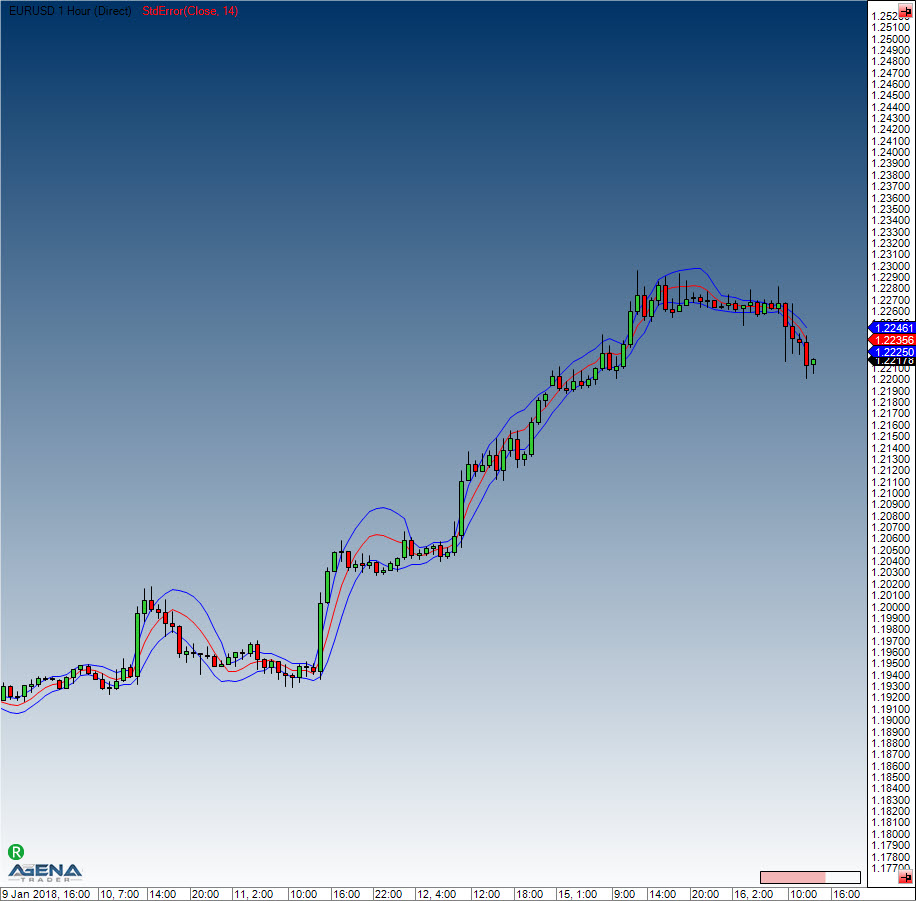Standard Error (StdError)
Description
Interpretation
Further information
Usage
StdError(int period)
StdError(IDataSeries inSeries, int period)
StdError(int period)[int barsAgo]
StdError(IDataSeries inSeries, int period)[int barsAgo]
//Upper band
StdError(int period).Upper[int barsAgo]
StdError(IDataSeries inSeries, int period).Upper[int barsAgo]
//Lower band
StdError(int period).Lower[int barsAgo]
StdError(IDataSeries inSeries, int period).Lower[int barsAgo]Return value
Parameters
Visualization

Example
Last updated